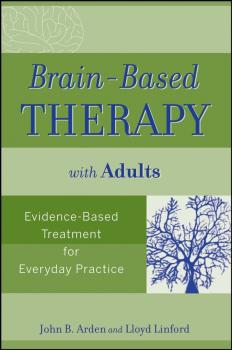ТОП просматриваемых книг сайта:
Социальная психология
Различные книги в жанре Социальная психология, доступные для чтения и скачиванияАннотация
A practical guide to implementing family interventions for psychosis, which discusses different family needs and illustrates different approaches to offering the interventions. Approximately 1 in 100 people experience psychosis, which can severely disrupt home and family life and place a heavy burden on carers A practical guide to implementing family interventions for psychosis, which discusses different family needs and illustrates different approaches to offering the interventions Shows how to tailor family interventions to meet different needs e.g. working via interpreter or with families in which multiple members suffer mental health problems No direct competition on family interventions for psychosis.
Аннотация
Through a compilation of original articles, the Handbook of Jealousy offers an integrated portrait of the emerging areas of research into the nature of jealousy and a forum for discussing the implications of the findings for theories of emotional and socio-cognitive development. Presents the most recent findings and theories on jealousy across a range of contexts and age-stages of development Includes 23 original articles with empirical findings and detailed commentaries by leading experts in the field Serves as a valuable resource for professionals in the fields of clinical psychology, psychiatry, and social work, as well as scholars in the fields of psychology, family studies, sociology, and anthropology
Аннотация
Brain-Based Therapy with Adults: Evidence-Based Treatment for Everyday Practice provides a straightforward, integrated approach that looks at what we currently know about the brain and how it impacts and informs treatment interventions. Authors John Arden and Lloyd Linford, experts in neuroscience and evidence-based practice, reveal how this new kind of therapy takes into account the uniqueness of each client. Presentation of detailed background and evidence-based?interventions for common adult disorders such as anxiety and depression offers you expert advice you can put into practice immediately.
Аннотация
The Wiley-Blackwell Handbook of Couples and Family Relationships presents original articles from leading experts that link research, policy, and practice together to reflect the most current knowledge of contemporary relationships. Offers interesting new perspectives on a range of relationship issues facing twenty-first century Western society Helps those who work with couples and families facing with relationship issues Includes practical suggestions for dealing with relationship problems Explores diverse issues, including family structure versus functioning; attachment theory; divorce and family breakdown; communication and conflict; self regulation, partner regulation, and behavior change; care-giving and parenting; relationship education; and therapy and policy implications
The Veterans and Active Duty Military Psychotherapy Treatment Planner, with DSM-5 Updates - Jongsma Arthur E.
Аннотация
This timesaving resource features: Treatment plan components for 39 behaviorally based presenting problems Over 1,000 prewritten treatment goals, objectives, and interventions—plus space to record your own treatment plan options A step-by-step guide to writing treatment plans that meet the requirements of most insurance companies and third-party payors Includes Evidence-Based Practice Interventions as required by many public funding sources and private insurers PracticePlanners® THE BESTSELLING TREATMENT PLANNING SYSTEM FOR MENTAL HEALTH PROFESSIONALS The Veterans and Active Duty Military Psychotherapy Treatment Planner provides all the elements necessary to quickly and easily develop formal treatment plans that satisfy the demands of HMOs, managed care companies, third-party payors, and state and federal agencies. Features empirically supported, evidence-based treatment interventions Organized around 39 main presenting problems in treating veterans and active duty military personnel, including substance abuse, adjustment to killing, anger management and domestic violence, pre-deployment stress, survivors' guilt, and combat and operational stress reaction Over 1,000 prewritten treatment goals, objectives, and interventions—plus space to record your own treatment plan options Easy-to-use reference format helps locate treatment plan components by behavioral problem Designed to correspond with The Veterans and Active Duty Military Psychotherapy Progress Notes Planner Includes a sample treatment plan that conforms to the requirements of most third-party payors and accrediting agencies including CARF, The Joint Commission (TJC), COA, and the NCQA Additional resources in the PracticePlanners® series: Progress Notes Planners contain complete, prewritten progress notes for each presenting problem in the companion Treatment Planners. Homework Planners feature behaviorally based, ready-to-use assignments to speed treatment and keep clients engaged between sessions. For more information on our PracticePlanners®, including our full line of Treatment Planners, visit us on the Web at: www.wiley.com/practiceplanners
Аннотация
Handbook of Evidence-Based Practice in Clinical Psychology, Volume 2 covers the evidence-based practices now identified for treating adults with a wide range of DSM disorders. Topics include fundamental issues, adult cognitive disorders, substance-related disorders, psychotic, mood, and anxiety disorders, and sexual disorders. Each chapter provides a comprehensive review of the evidence-based practice literature for each disorder and then covers several different treatment types for clinical implementation. Edited by the renowned Peter Sturmey and Michel Hersen and featuring contributions from experts in the field, this reference is ideal for academics, researchers, and libraries.
Аннотация
In the past fifty years, scholars of human development have been moving from studying change in humans within sharply defined periods, to seeing many more of these phenomenon as more profitably studied over time and in relation to other processes. The Handbook of Life-Span Development, Volume 1: Cognition, Biology, and Methods presents the study of human development conducted by the best scholars in the 21st century. Social workers, counselors and public health workers will receive coverage of of the biological and cognitive aspects of human change across the lifespan.
Аннотация
This important new text is a comprehensive survey of current thinking and research on a wide range of developmental disorders. Highlights key research on normal and typical development Includes clinical case studies and diagrams to illustrate key concepts A reader-friendly writing style
Minnesota Symposia on Child Psychology, Volume 36. The Origins and Organization of Adaptation and Maladaptation - Cicchetti Dante
Аннотация
The Origins and Organization of Adaptation and Maladaptation provides scholars, students, and practitioners with access to the newest work of top tier scientists in psychology. This volume addresses issues relevant to the impact of attachment on romantic relationships in later adulthood. In addition, it explores cutting-edge issues in the field, heralding critical up-and-coming areas of scholarship. Academic researchers in developmental psychology, as well as developmental psychopathology will look forward to this volume.
Аннотация
The must-have guide to honestly and sensitively answering your clients' questions Written to help therapists view their clients' questions as collaborative elements of clinical work, What Do I Say? explores the questions—some direct, others unspoken—that all therapists, at one time or another, will encounter from clients. Authors and practicing therapists Linda Edelstein and Charles Waehler take a thought-provoking look at how answers to clients' questions shape a therapeutic climate of expression that encourages personal discovery and growth. Strategically arranged in a question-and-answer format for ease of use, this hands-on guide is conversational in tone and filled with personal examples from experienced therapists on twenty-three hot-button topics, including religion, sex, money, and boundaries. What Do I Say? tackles actual client questions, such as: Can you help me? (Chapter 1, The Early Sessions) Sorry I am late. Can we have extra time? (Chapter 9, Boundaries) I don't believe in all this therapy crap. What do you think about that? (Chapter 3, Therapeutic Process) Why is change so hard? (Chapter 4, Expectations About Change) Will you attend my graduation/wedding/musical performance/speech/business grand opening? (Chapter 20, Out of the Office) Where are you going on vacation? (Chapter 10, Personal Questions) I gave your name to a friend . . . Will you see her? (Chapter 9, Boundaries) Should I pray about my problems? (Chapter 12, Religion and Spirituality) Are you like all those other liberals who believe gay people have equal rights? (Chapter 13, Prejudice) The power of therapy lies in the freedom it offers clients to discuss anything and everything. It's not surprising then, that clients will surprise therapists with their experiences and sometimes with the questions they ask. What Do I Say? reveals how these questions—no matter how difficult or uncomfortable—can be used to support the therapeutic process rather than derail the therapist–client relationship.










